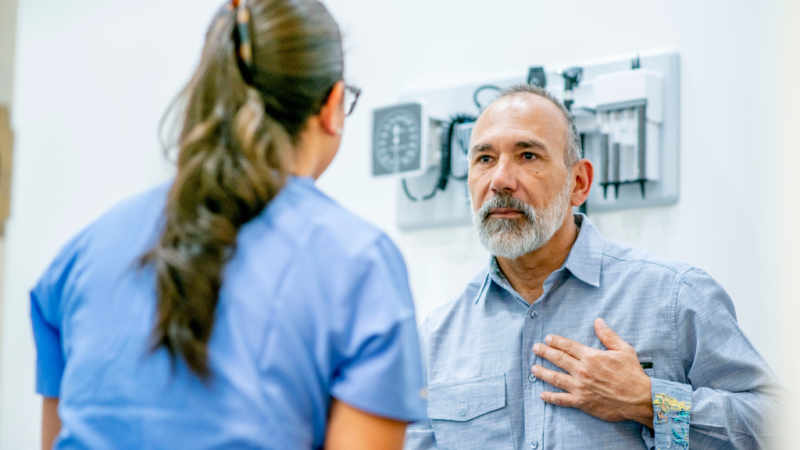Restoring Health, Redefining GI Care.
Explore the latest updates, research, and clinical insights driving innovation in regenerative gastrointestinal therapy from pediatric Short Bowel Syndrome (SBS) to emerging applications across the GI tract.

Parenting with Short Bowel Syndrome (SBS) or a Chronic GI Condition: Balancing Health & Family Life
Parenting is demanding, even under the best circumstances. Add Short Bowel Syndrome (SBS) or another chronic GI condition into the mix, and the challenges can feel overwhelming. How do you balance your own medical needs while raising children? How do you handle fatigue, dietary restrictions, or medical treatments while being […]

Marriage & Long-Term Relationships with SBS and Chronic GI Conditions
Marriage and long-term relationships come with challenges, growth, and compromise—and when one partner has Short Bowel Syndrome (SBS) or another chronic GI condition, those challenges can feel even more complex. How do you maintain intimacy when symptoms are unpredictable? How do you balance your partner’s support with your independence? How […]

Relationships, Dating, and Intimacy While Living with SBS or a Chronic GI Condition
Navigating relationships and dating with Short Bowel Syndrome (SBS) or another chronic GI condition can feel intimidating. Concerns about body image, symptoms, bathroom urgency, dietary restrictions, or medical devices may create self-doubt, anxiety, or fear of judgment. But the truth is—everyone deserves love, connection, and fulfilling relationships. Your condition is […]

Mental Health & Coping Strategies for Adults Living with SBS and Chronic GI Conditions
Managing Short Bowel Syndrome (SBS) or any chronic gastrointestinal (GI) condition is more than just a physical challenge—it affects mental and emotional well-being as well. Constantly monitoring diet, hydration, medications, and symptoms can be exhausting. Anxiety over sudden bathroom urgency, social stigma, or long-term medical care can feel overwhelming. Depression, […]

Living with Short Bowel Syndrome as an Adult: Managing Nutrition, Health & Quality of Life
Short Bowel Syndrome (SBS) is often associated with infants and children, but many adults live with SBS due to surgical resections, Crohn’s disease, trauma, or congenital conditions. Managing SBS as an adult comes with its own set of challenges, from nutrient malabsorption and hydration issues to navigating diet, work, and […]

Advocating for Your Child’s Healthcare Needs: A Parent’s Guide to Medical Navigation
As a parent of a child with Short Bowel Syndrome (SBS), you wear many hats—caregiver, advocate, nutritionist, and medical coordinator. Managing your child’s care often means juggling specialists, insurance claims, medical appointments, and treatment plans while ensuring that their needs are met. But navigating the healthcare system can be frustrating. […]

The Emotional Journey of Parenting a Child with SBS: Coping Strategies & Support
Hearing the words “Your child has Short Bowel Syndrome” (SBS) can be overwhelming. Beyond the medical complexities of feeding tubes, TPN, hospital stays, and nutrition challenges, there’s an emotional journey that parents embark on—a journey filled with uncertainty, stress, resilience, and hope. You are not alone. Parenting a medically complex […]

Inside an SBS Care Team: How Multidisciplinary Experts Improve Outcomes
A Short Bowel Syndrome (SBS) diagnosis can feel overwhelming for parents, but you are not alone in this journey. Children with SBS require specialized, coordinated care—which is why having a strong multidisciplinary team is crucial for long-term success. SBS is a complex condition that affects digestion, growth, hydration, and overall […]

Nutrition & Growth in Children with SBS: Expert Tips from GI Specialists & Dietitians
For parents of children with Short Bowel Syndrome (SBS), one of the biggest concerns is nutrition and growth. SBS affects how the body absorbs nutrients, making it challenging for children to gain weight, grow, and develop properly. Every child with SBS has a unique nutritional journey. Some rely on Total […]

Advocating for Your Child with SBS: A Parent’s Guide to Medical and Educational Rights
When your child is diagnosed with Short Bowel Syndrome (SBS), you quickly realize that medical care is only one part of the equation. Advocacy becomes a full-time job. From securing the best healthcare providers to fighting for insurance coverage and ensuring your child receives proper educational accommodations, parents play a […]
